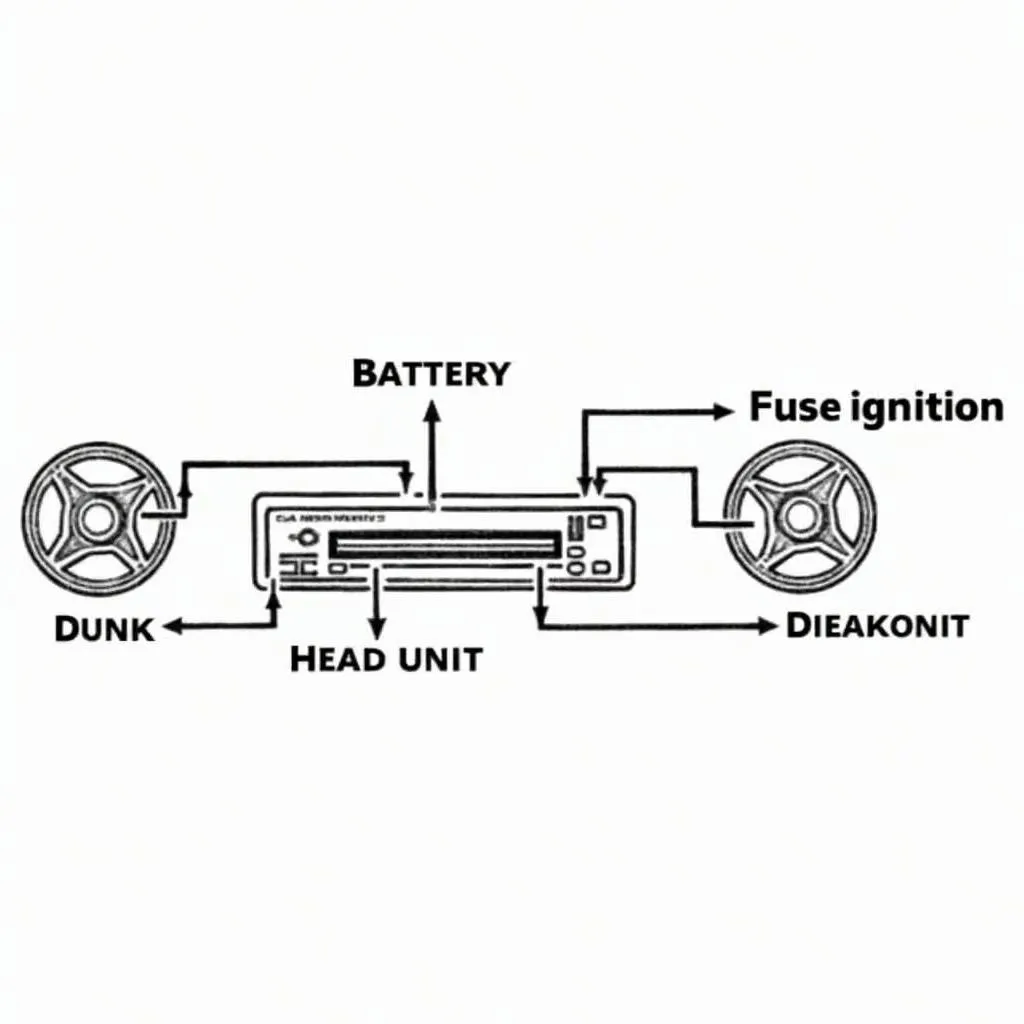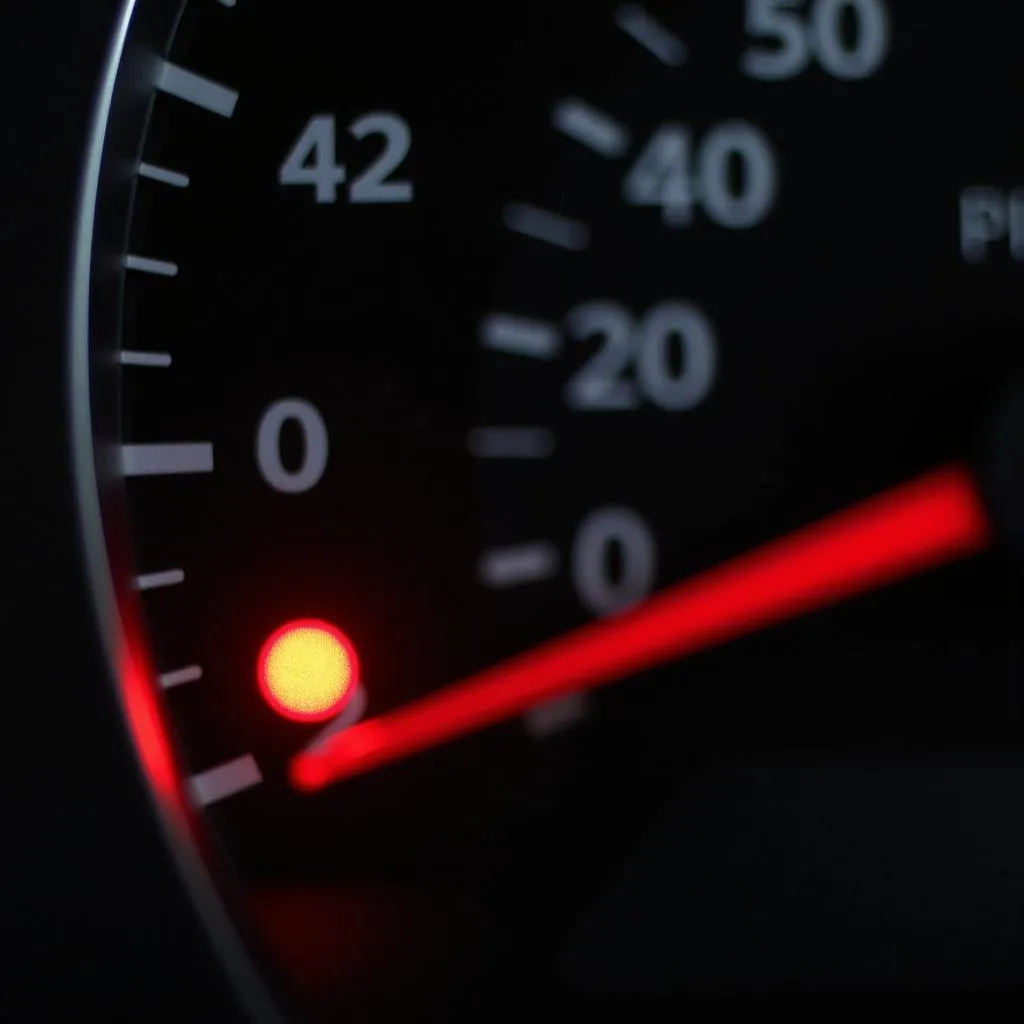Imagine cruising down the road in your trusty 2002 VW Passat when suddenly, a daunting “Brake Fault, Stop!” message illuminates your dashboard. This alarming situation can instantly trigger a wave of anxiety and uncertainty. What does this warning mean? Is it safe to drive? How can you fix it?
This comprehensive guide delves into the intricacies of the 2002 VW Passat brake fault warning, equipping you with the knowledge to understand, diagnose, and potentially resolve this issue. Whether you’re an automotive enthusiast or simply seeking to understand this common Passat problem, this article will serve as your go-to resource.
Decoding the “Brake Fault, Stop!” Warning
The “Brake Fault, Stop!” warning on your 2002 VW Passat is a serious indication that a critical issue exists within your braking system. This warning is not to be ignored, as it signals a potential failure that could compromise your safety and the safety of others on the road.
Unlike a simple brake pad wear indicator, this warning points to a malfunction within the electronic or hydraulic components of your Passat’s braking system. Ignoring this warning could lead to reduced braking performance, unexpected brake failure, or even a complete loss of braking power.
Common Causes of the Brake Fault Warning
Several factors can trigger the dreaded “Brake Fault, Stop!” warning in your 2002 VW Passat. Identifying the root cause is crucial for effective repair. Here are some of the most common culprits:
-
Low Brake Fluid Level: This is often the most straightforward culprit. Insufficient brake fluid, often caused by leaks in the system, can trigger this warning.
-
Faulty Brake Light Switch: A malfunctioning brake light switch can disrupt the brake light circuit, leading the system to detect a fault and display the warning.
-
Worn Brake Pad Wear Sensors: While the Passat utilizes electronic brake pad wear sensors, issues with these sensors, such as damage or corrosion, can trigger a false “Brake Fault” warning.
-
ABS Sensor Problems: The Anti-lock Braking System (ABS) relies on sensors to function correctly. Malfunctioning or dirty ABS sensors can disrupt the system and trigger the warning.
-
Hydraulic Control Unit Malfunction: The Hydraulic Control Unit (HCU) is the brain of your ABS system. A failing HCU can lead to various brake system issues, including triggering the “Brake Fault, Stop!” warning.
Diagnosing the Brake Fault: A Step-by-Step Approach
Before jumping to conclusions and replacing various components, a systematic approach to diagnosis is essential. Here’s a step-by-step guide to help you pinpoint the problem:
-
Check Brake Fluid Level: Begin with the simplest solution. Locate the brake fluid reservoir under the hood and visually inspect the fluid level. If it’s low, adding brake fluid might temporarily resolve the issue, but a mechanic should inspect the system for leaks.
-
Inspect Brake Light Functionality: Verify if your brake lights illuminate when pressing the brake pedal. If not, a faulty brake light switch is a likely suspect.
-
Scan for Diagnostic Trouble Codes (DTCs): Utilizing an OBD-II scanner can provide valuable insights into the specific fault codes stored in your Passat’s computer. These codes can pinpoint the problematic area within the braking system.
-
Check Brake Pad Wear: While worn brake pads alone shouldn’t trigger the “Brake Fault, Stop!” warning, it’s worth inspecting your brake pads for excessive wear as part of a thorough diagnosis.
-
Inspect ABS Sensors: Visually inspect the ABS sensors located on each wheel for any visible damage or debris buildup. Cleaning the sensors might resolve the issue if dirt or grime interferes with their operation.
-
Consider Professional Diagnostics: If the issue persists despite basic troubleshooting, seeking professional diagnostics from a qualified mechanic specializing in Volkswagen vehicles is highly recommended. They have the expertise and specialized tools to diagnose and repair complex brake system issues accurately.
Addressing the “Brake Fault, Stop!” Warning: Repair and Maintenance Tips
Repairing the underlying cause of the “Brake Fault, Stop!” warning is crucial for restoring your Passat’s braking system to optimal functionality and ensuring your safety on the road.
-
Address Brake Fluid Leaks: If low brake fluid triggered the warning, identifying and repairing any leaks within the brake lines, calipers, or master cylinder is paramount.
-
Replace Faulty Components: Depending on the diagnosis, replacing faulty components such as the brake light switch, ABS sensors, or even the Hydraulic Control Unit might be necessary to rectify the issue.
-
Regular Brake System Maintenance: Preventive maintenance is key to avoiding brake system issues. Adhering to your Passat’s recommended brake fluid flush intervals and routinely inspecting your brake pads, rotors, and brake lines can prevent costly repairs and ensure optimal braking performance.
Addressing Frequently Asked Questions:
Q: Can I drive my Passat with the “Brake Fault, Stop!” warning on?
A: It is highly discouraged and unsafe to drive with the “Brake Fault, Stop!” warning illuminated. This warning indicates a potential for brake failure, putting you and others at risk. Seek immediate attention from a qualified mechanic.
Q: How much does it cost to fix a “Brake Fault, Stop!” warning on a 2002 VW Passat?
A: The repair cost varies significantly depending on the underlying cause. Simple fixes like a brake light switch replacement might cost under $100, while a Hydraulic Control Unit replacement could exceed $1000.
Q: How often should I flush my Passat’s brake fluid?
A: It’s generally recommended to flush your Passat’s brake fluid every 2-3 years or as specified in your owner’s manual.
Conclusion
Encountering the “Brake Fault, Stop!” warning in your 2002 VW Passat is undoubtedly an unnerving experience. However, by understanding the potential causes, utilizing a systematic approach to diagnosis, and seeking timely repairs from qualified professionals, you can overcome this issue and restore your Passat’s braking system to its full potential, ensuring a safe and confident driving experience.


